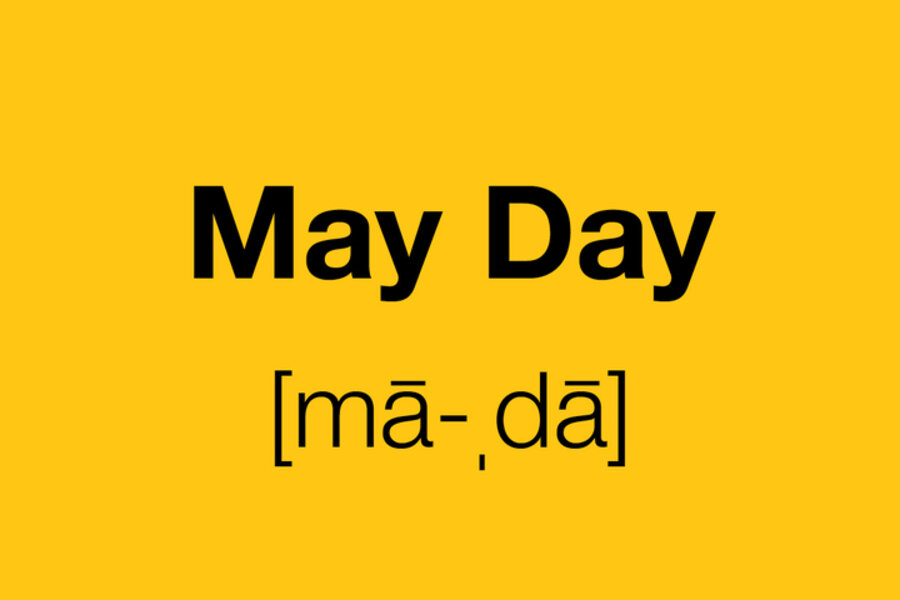May Day meanings, from holiday to distress call
Loading...
Depending on where you are and what you are doing, “May Day” can be a celebration of spring, a holiday dedicated to organized labor, or a radio distress call. Let’s have a look at the many meanings of May Day.
The spring celebration came first. In early medieval England, May was considered to be the first month of abundance. Baby animals were growing, flowers were blooming, and some crops were ready to eat. An Old English name for the month commemorates this bounty; it was Ðrimilce-monaþ (“month of three milkings”) because cows were producing so much that they could be milked three times a day. The word May was also used in Old English, and comes from the name of a Roman earth goddess, Maia.
May 1, halfway between the spring equinox and the summer solstice, was known as May Day, when people danced around maypoles (trees or poles covered with streamers), elected a king and queen of May, and, in the 19th century, anonymously left May baskets – paper horns filled with flowers – at neighbors’ doors. May Day is the only holiday I can think of with its own verb; participating in these festivities was called maying.
May Day also refers to an entirely different holiday, which honors the working classes. On May 1, 1886, hundreds of thousands of American workers went on strike to demand an eight-hour workday, instead of the usual 10 hours per day, six days a week. A few days later, a riot broke out in Chicago when police fired into a crowd of striking workers, leaving over a dozen police officers and workers dead. The Haymarket massacre spurred the International Socialist Conference to declare May Day a holiday in 1889, a day in which workers around the world would demonstrate for fairer conditions. In many countries, May Day is still a national holiday that honors the dignity of work and workers, but not in the United States. In the 1950s, May Day was thought to be too “communist,” and President Dwight Eisenhower declared that May 1 would henceforth be “Law Day,” to “celebrate the rule of law.”
Mayday is also an internationally understood distress call. The telegraph produced the first standardized distress signal: …---… or SOS in international Morse code. These dots and dashes were chosen simply because they were easy to transmit and distinguish, not because SOS was an acronym for “Save Our Souls” or “Save Our Ship.” As plane travel increased, pilots needed a spoken distress signal, and “Ess Oh Ess” was hard to enunciate or hear clearly. In the 1920s, it was decided that the call would be “mayday,” repeated three times, from the French m’aidez (“help me”)!







